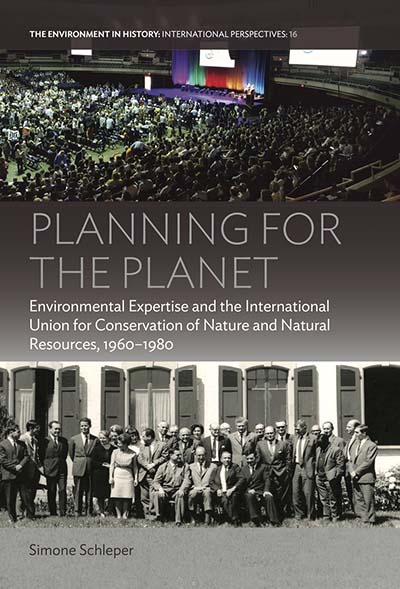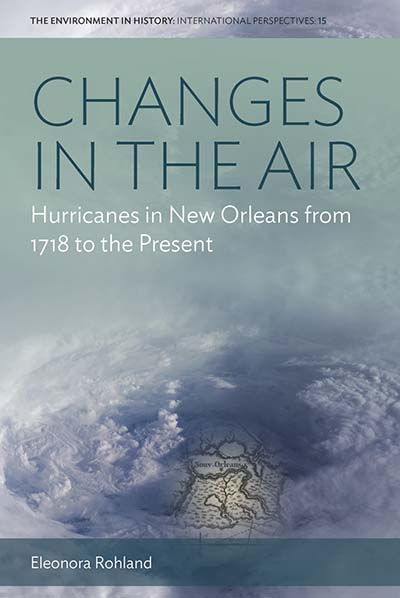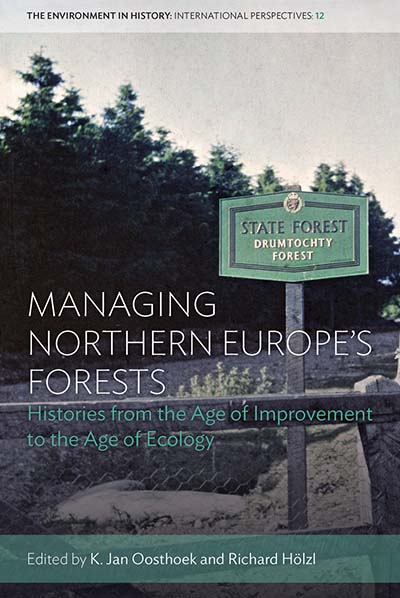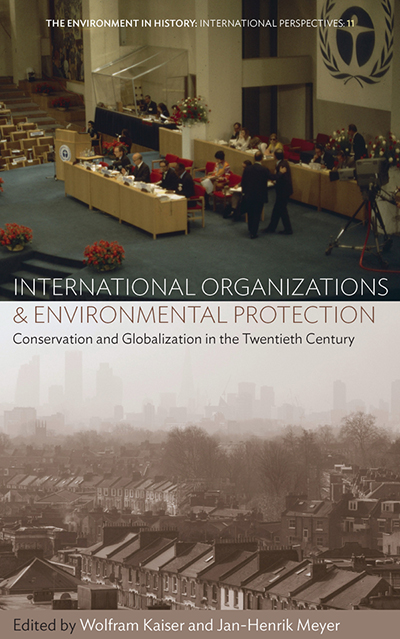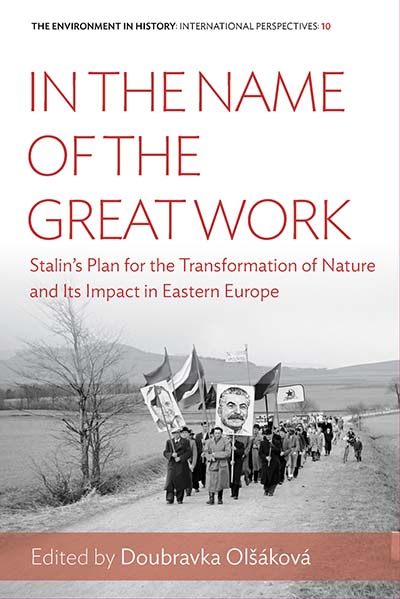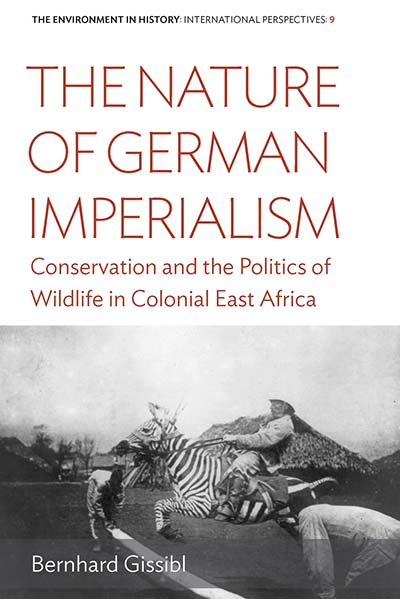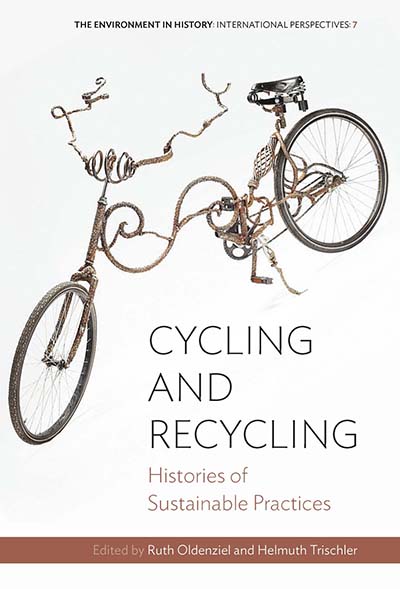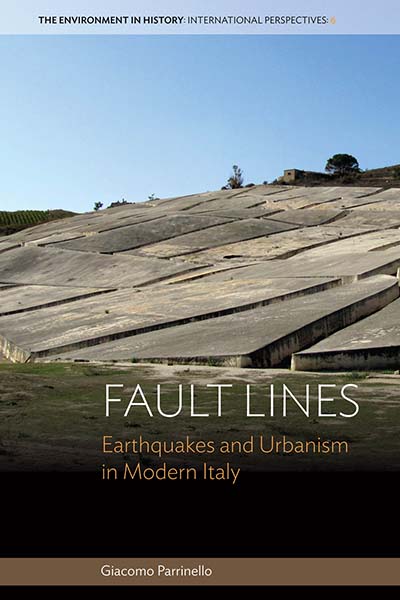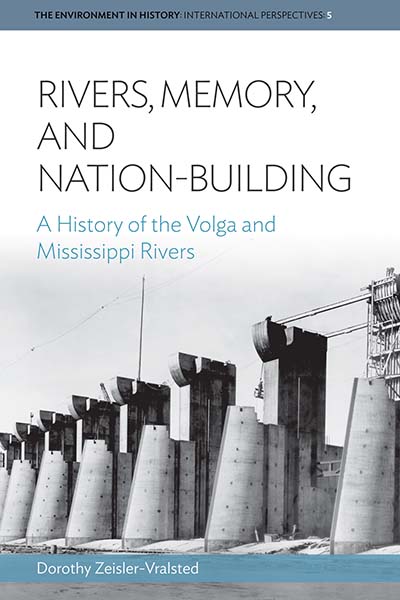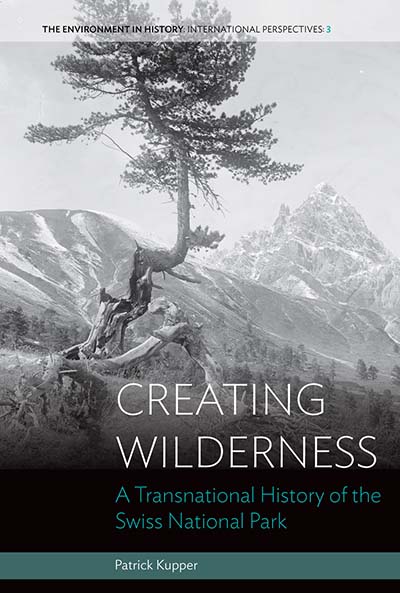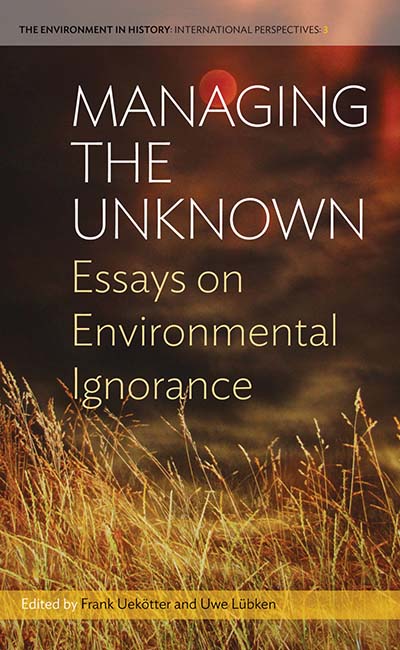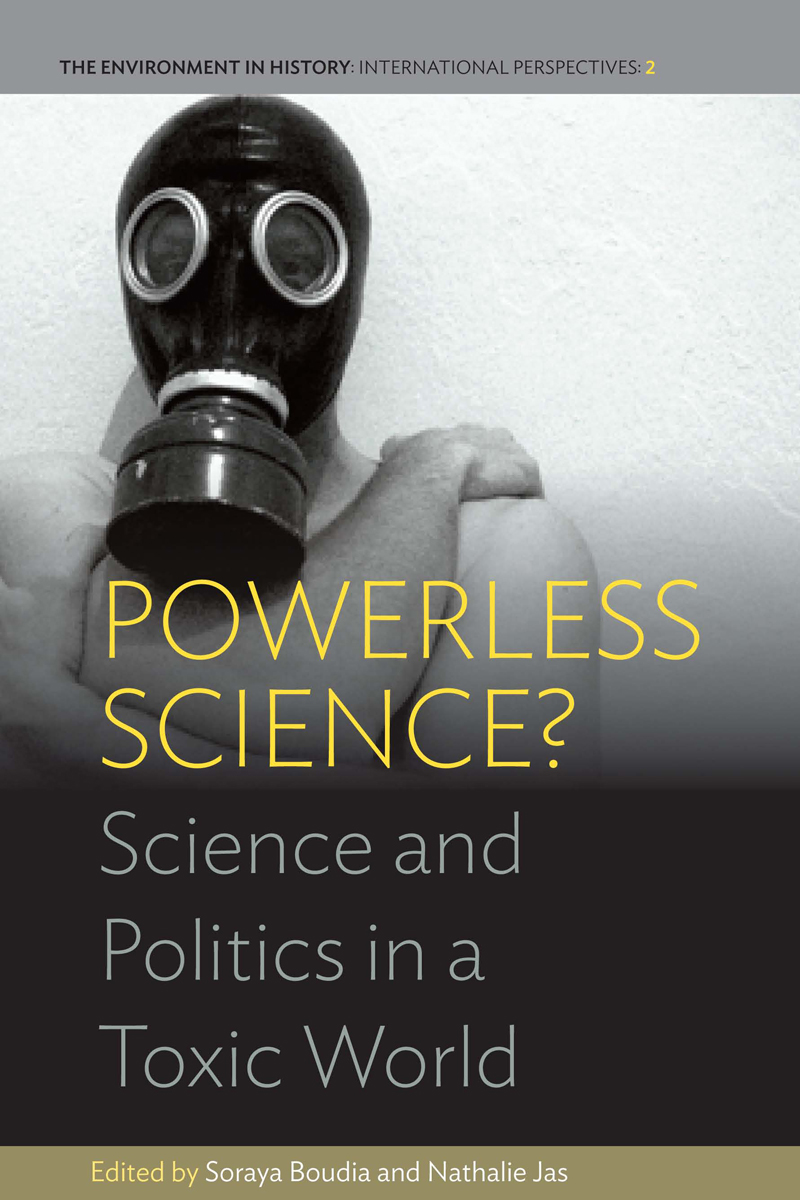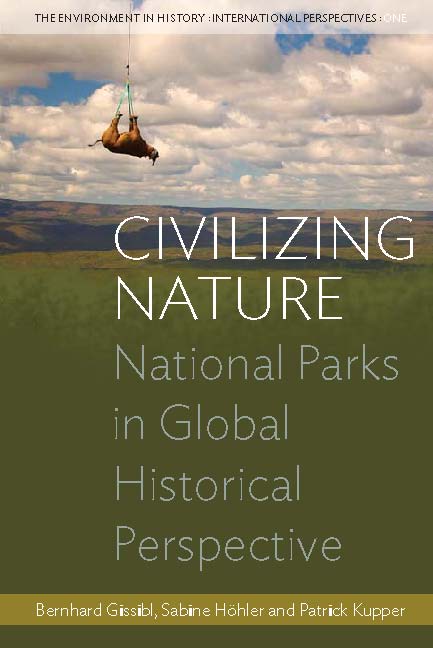-
The Environment in History: International Perspectives
This English-language series of monographs and anthologies showcases high quality research in environmental history and related disciplines from around the world. As such, it investigates the relationship between human society and the natural world from historical, cultural, and political perspectives, and it strives to bridge both national and disciplinary divides, with a particular emphasis on European, transnational, and comparative research.
The series is published with Berghahn Books (New York and Oxford) and peer reviewed by scholars affiliated with the RCC and the European Society of Environmental History (ESEH).
Editors: Christof Mauch and Helmuth Trischler for the RCC; Kieko Matteson (University of Hawaii) and Dolly Jørgensen (University of Stavanger) for ESEH.
International Editorial Committee: Mauro Agnoletti (University of Florence), Greg Bankoff (University of Hull), William Beinart (University of Oxford), Tom Brooking (University of Otago), Jane Carruthers (University of South Africa, Pretoria), Peter Coates (University of Bristol), Georgina Endfield (University of Nottingham), Eva Jakobsson (University of Stavanger, Norway), Bao Maohong (Peking University), Geneviève Massard-Guilbaud (School for Advanced Studies in the Social Sciences, France), John McNeill (Georgetown University), Jose Augusto Padua (Federal University of Rio de Janeiro), Joachim Radkau (Bielefeld University), Ravi Rajan (University of California, Santa Cruz), Mahesh Rangarajan (University of Delhi), Christian Rohr (University of Bern), Verena Winiwarter (Alpen-Adria-Universität, Klagenfurt).
Further details are available on the website of the Rachel Carson Center.
-
Table of contents
- Volume 17: Hazardous Chemicals: Agents of Risk and Change, 1800-2000
- Volume 16: Planning for the Planet: Environmental Expertise and the International Union for Conservation of Nature and Natural Resources, 1960–1980
- Volume 15: Changes in the Air: Hurricanes in New Orleans from 1718 to the Present
- Volume 14: Ice and Snow in the Cold War: Histories of Extreme Climatic Environments
- Volume 13: A Living Past: Environmental Histories of Modern Latin America
- Volume 12: Managing Northern Europe’s Forests:Histories from the Age of Improvement to the Age of Ecology
- Volume 11: International Organizations and Environmental Protection: Conservation and Globalization in the Twentieth Century
- Volume 10: In the Name of the Great Work: Stalin’s Plan for the Transformation of Nature and its Impact in Eastern Europe
- Volume 9: The Nature of German Imperialism: Conservation and the Politics of Wildlife in Colonial East Africa
- Volume 8: Disrupted Landscapes: State, Peasants, and the Politics of Land in Postsocialist Romania
- Volume 7: Cycling and Recycling: Histories of Sustainable Practices
- Volume 6: Fault Lines: Earthquakes and Urbanism in Modern Italy
- Volume 5: Rivers, Memory, and Nation-Building: A History of the Volga and Mississippi Rivers
- Volume 4: Creating Wilderness: A Transnational History of the Swiss National Park
- Volume 3: Managing the Unknown: Essays on Environmental Ignorance
- Volume 2: Powerless Science? Science and Politics in a Toxic World
- Volume 1: Civilizing Nature: National Parks in Global Historical Perspective
-
Volume 17
Hazardous Chemicals: Agents of Risk and Change, 1800-2000
Edited by Ernst Homburg and Elisabeth VaupelAlthough poisonous substances have been a hazard for the whole of human history, it is only with the development and large-scale production of new chemical substances over the last two centuries that toxic, manmade pollutants have become such a varied and widespread danger. Covering a host of both notorious and little-known chemicals, the chapters in this collection investigate the emergence of specific toxic, pathogenic, carcinogenic, and ecologically harmful chemicals as well as the scientific, cultural and legislative responses they have prompted. Each study situates chemical hazards in a long-term and transnational framework and demonstrates the importance of considering both the natural and the social contexts in which their histories have unfolded.
Learn more about the volume here.
-
Volume 16
Planning for the Planet: Environmental Expertise and the International Union for Conservation of Nature and Natural Resources, 1960–1980
By Simone SchleperDuring the 1960s and 1970s, rapidly growing environmental awareness and concern created unprecedented demand for ecological expertise and novel challenges for ecological advocacy groups such as the International Union for Conservation of Nature and Natural Resources (IUCN). This book reveals how, despite their vast scientific knowledge and their attempts to incorporate socially relevant themes, IUCN experts inevitably struggled to make global schemes for nature conservation a central concern for UNESCO, UNEP and other intergovernmental organizations.
Learn more about the volume here.
-
Volume 15
Changes in the Air: Hurricanes in New Orleans from 1718 to the Present
By Eleonora RohlandHurricanes have been a constant in the history of New Orleans. Since before its settlement as a French colony in the eighteenth century, the land entwined between Lake Pontchartrain and the Mississippi River has been lashed by powerful Gulf storms. Time and again, these hurricanes have wrought immeasurable loss and devastation, spurring reinvention and ingenuity on the part of inhabitants. Changes in the Air offers a rich and thoroughly researched history of how hurricanes have shaped and reshaped New Orleans from the colonial era to the present day, focusing on how its residents have adapted to a uniquely unpredictable and destructive environment across more than three centuries.
Learn more about the volume here.
-
Volume 14
Ice and Snow in the Cold War: Histories of Extreme Climatic Environments
Edited by Julia Herzberg, Christian Kehrt, and Franziska TormaThe history of the Cold War has focused overwhelmingly on statecraft and military power, an approach that has naturally placed Moscow and Washington center stage. Meanwhile, regions such as Alaska, the polar landscapes, and the cold areas of the Soviet periphery have received little attention. However, such environments were of no small importance during the Cold War: in addition to their symbolic significance, they also had direct implications for everything from military strategy to natural resource management. Through histories of these extremely cold environments, this volume makes a novel intervention in Cold War historiography, one whose global and transnational approach undermines the simple opposition of “East” and “West.”
Learn more about the volume here.
-
Volume 13
A Living Past: Environmental Histories of Modern Latin America
Edited by John Soluri, Claudia Leal, and José Augusto PáduaThough still a relatively young field, the study of Latin American environmental history is blossoming, as the contributions to this definitive volume demonstrate. Bringing together 13 leading experts on the region, A Living Past synthesizes a wide range of scholarship to offer new perspectives on environmental change in Latin America and the Spanish Caribbean since the nineteenth century. Each chapter provides insightful, up-to-date syntheses of current scholarship on critical countries and ecosystems (including Brazil, Mexico, the Caribbean, the tropical Andes, and tropical forests) and such cross-cutting themes as agriculture, conservation, mining, ranching, science, and urbanization. Together, these studies provide valuable historical contexts for making sense of contemporary environmental challenges facing the region.
Learn more about the volume here.
-
Volume 12
Managing Northern Europe’s Forests:Histories from the Age of Improvement to the Age of Ecology
Edited by K. Jan Oosthoek and Richard HölzlNorthern Europe was, by many accounts, the birthplace of much of modern forestry practice, and for hundreds of years the region’s woodlands have played an outsize role in international relations, economic growth, and the development of national identity. Across 11 chapters, the contributors to this volume survey the histories of state forestry policy in Scandinavia, the Low Countries, Germany, Poland, and Great Britain from the early modern period to the present. Each explores the complex interrelationships of state-building, resource management, knowledge transfer, and trade over a period characterized by ongoing modernization and evolving environmental awareness.
Learn more about the volume here.
-
Volume 11
International Organizations and Environmental Protection: Conservation and Globalization in the Twentieth Century
Edited by Wolfram Kaiser and Jan-Henrik MeyerPollution, resource depletion, habitat management, and climate change are all issues that necessarily transcend national boundaries. Accordingly, they and other environmental concerns have been a particular focus for international organizations from before the First World War to the present day. This volume is the first to comprehensively explore the environmental activities of professional communities, NGOs, regional bodies, the United Nations, and other international organizations during the twentieth century. It follows their efforts to shape debates about environmental degradation, develop binding intergovernmental commitments, and—following the seminal 1972 Conference on the Human Environment—implement and enforce actual international policies.
Learn more about the volume here.
-
Volume 10
In the Name of the Great Work: Stalin’s Plan for the Transformation of Nature and its Impact in Eastern Europe
Edited by Doubravka OlšákováBeginning in 1948, the Soviet Union launched a series of wildly ambitious projects to implement Joseph Stalin’s vision of a total “transformation of nature.” Intended to increase agricultural yields dramatically, this utopian impulse quickly spread to the newly communist states of Eastern Europe, captivating political elites and war-fatigued publics alike. By the time of Stalin’s death, however, these attempts at “transformation”—which relied upon ideologically corrupted and pseudoscientific theories—had proven a spectacular failure. This richly detailed volume follows the history of such projects in three communist states—Poland, Hungary, and Czechoslovakia—and explores their varied, but largely disastrous, consequences.
Learn more about the volume here.
-
Volume 9
The Nature of German Imperialism: Conservation and the Politics of Wildlife in Colonial East Africa
By Bernhard GissiblToday, the East African state of Tanzania is renowned for wildlife preserves such as the Serengeti National Park, the Ngorongoro Conservation Area, and the Selous Game Reserve. Yet few know that most of these initiatives emerged from decades of German colonial rule. This book gives the first full account of Tanzanian wildlife conservation up until World War I, focusing upon elephant hunting and the ivory trade as vital factors in a shift from exploitation to preservation that increasingly excluded indigenous Africans. Analyzing the formative interactions between colonial governance and the natural world, The Nature of German Imperialism situates East African wildlife policies within the global emergence of conservationist sensibilities around 1900.
Learn more about the volume here.
Click here to read an interview with the author (in German).
-
Volume 8
Disrupted Landscapes: State, Peasants, and the Politics of Land in Postsocialist Romania
By Stefan DorondelThe fall of the Soviet Union was a transformative event for the national political economies of Eastern Europe, leading not only to new regimes of ownership and development but to dramatic changes in the natural world itself. This painstakingly researched volume focuses on the emblematic case of postsocialist Romania, in which the transition from collectivization to privatization profoundly reshaped the nation’s forests, farmlands, and rivers. From bureaucrats abetting illegal deforestation to peasants opposing government agricultural policies, it reveals the social and political mechanisms by which neoliberalism was introduced into the Romanian landscape.
Learn more about the volume here.
-
Volume 7
Cycling and Recycling: Histories of Sustainable Practices
Edited by Ruth Oldenziel and Helmuth TrischlerTechnology has long been an essential consideration in public discussions of the environment, with the focus overwhelmingly on creating new tools and techniques. In more recent years, however, activists, researchers, and policymakers have increasingly turned to mobilizing older technologies in their pursuit of sustainability. In fascinating case studies ranging from the Early Modern secondhand trade to utopian visions of human-powered vehicles, the contributions gathered here explore the historical fortunes of two such technologies—bicycling and waste recycling—tracing their development over time and providing valuable context for the policy successes and failures of today.
Learn more about the volume here.
-
Volume 6
Fault Lines: Earthquakes and Urbanism in Modern Italy
By Giacomo ParrinelloEarth’s fractured geology is visible in its fault lines. It is along these lines that earthquakes occur, sometimes with disastrous effects. These disturbances can significantly influence urban development, as seen in the aftermath of two earthquakes in Italy, Messina in 1908 and in the Belice Valley, Sicily, in 1968. Following the history of these places before and after their destruction, this book explores plans and developments that preceded the disasters, and the urbanism that emerged from the ruins. These stories explore fault lines between “rural” and “urban,” “backwardness” and “development,” and “before” and “after,” shedding light on the role of environmental forces in the history of human habitats.
Winner of the 2015 book prize of the American Association for Italian Studies in the category “20th and 21st century.”
Winner of the 2016 ANCI-Storia book prize, jointly awarded by the SISSCO (Society of Historians of Modern Italy) and the ANCI (National Association of Italian Municipalities).Learn more about this volume here.
-
Volume 5
Rivers, Memory, and Nation-Building: A History of the Volga and Mississippi Rivers
By Dorothy Zeisler-VralstedRivers figure prominently in a nation’s historical memory, and the Volga and Mississippi have special importance in Russian and American cultures. Beginning in the pre-modern world, both rivers served as critical trade routes connecting cultures in an extensive exchange network, while also sustaining populations through their surrounding wetlands and bottomlands. In modern times, “Mother Volga” and the “Father of Waters” became integral parts of national identity, contributing to a sense of Russian and American exceptionalism. Furthermore, both rivers were drafted into service as the means to modernize the nation-state through hydropower and navigation. Despite being forced into submission for modern-day hydrological regimes, the Volga and Mississippi Rivers persist in the collective memory and continue to offer solace, recreation, and sustenance. Through their histories we derive a more nuanced view of human interaction with the environment, which adds another lens to our understanding of the past.
Learn more about this volume here.
-
Volume 4
Creating Wilderness: A Transnational History of the Swiss National Park
By Patrick KupperThe history of the Swiss National Park, from its creation in the years before the Great War to the present, is told for the first time in this book. Unlike Yellowstone Park, which embodied close cooperation between state-supported conservation and public recreation, the Swiss park put in place an extraordinarily strong conservation program derived from a close alliance between the state and scientific research. This deliberate reinterpretation of the American idea of the national park was innovative and radical, but its consequences were not limited to Switzerland. The Swiss park became the prime example of a “scientific national park,” thereby influencing the course of national parks worldwide.
Translated from the German by Giselle Weiss.
Winner of the 2013 Turku Book Award.Learn more about this volume here.
-
Volume 3
Managing the Unknown: Essays on Environmental Ignorance
Edited by Frank Uekötter and Uwe LübkenInformation is crucial when it comes to the management of resources. But what if knowledge is incomplete, or biased, or otherwise deficient? How did people define patterns of proper use in the absence of cognitive certainty? Discussing this challenge for a diverse set of resources from fish to rubber, these essays show that deficient knowledge is a far more pervasive challenge in resource history than conventional readings suggest. Furthermore, environmental ignorance does not inevitably shrink with the march of scientific progress: these essays suggest more of a dialectical relationship between knowledge and ignorance that has different shapes and trajectories. With its combination of empirical case studies and theoretical reflection, the essays make a significant contribution to the interdisciplinary debate on the production and resilience of ignorance. At the same time, this volume combines insights from different continents as well as the seas in between and thus sketches outlines of an emerging global resource history.
Learn more about this volume here.
-
Volume 2
Powerless Science? Science and Politics in a Toxic World
Edited by Soraya Boudia and Nathalie JasIn spite of decades of research on toxicants, along with the growing role of scientific expertise in public policy and the unprecedented rise in the number of national and international institutions dealing with environmental health issues, problems surrounding contaminants and their effects on health have never appeared so important, sometimes to the point of appearing insurmountable. This calls for a reconsideration of the roles of scientific knowledge and expertise in the definition and management of toxic issues, which this book seeks to do. It looks at complex historical, social, and political dynamics, made up of public controversies, environmental and health crises, economic interests, and political responses, and demonstrates how and to what extent scientific knowledge about toxicants has been caught between scientific, economic, and political imperatives.
Learn more about this volume here.
-
Volume 1
Civilizing Nature: National Parks in Global Historical Perspective
Edited by Bernhard Gissibl, Sabine Höhler, and Patrick KupperNational Parks are one of the most important and successful institutions in global environmentalism. Since their first designation in the United States in the 1860s and 1870s they have become a global phe nomenon. The development of this multitude of ecological as well as political systems cannot be understood as a simple reaction to mounting environmental problems, nor can it be explained by the spread of environmental sensibilities. Shifting the focus from the usual emphasis on the National Parks in the United States, this volume adopts an historical and transnational perspective on the global geography of protected areas and its changes over time. It focuses especially on the actors, networks, mechanisms, arenas, and institutions responsible for the global spread of the National Park and the associated utilization and mobilization of asymmetrical relationships of power and knowledge and makes a benchmark contribution to scholarly discussions of globalization and the emergence of both global environmental institutions and governance.
Learn more about this volume here.
Click here to read an interview with the editors of Civilizing Nature.Click here for a review of the book by Ian Tyrrell.
“With an intellectual coherence often missing in the revised proceedings of conferences, Civilizing Nature is a path-breaking work in its field of comparative national park history. Both editors and contributors must be commended on the outcome. It is also a valuable contribution to environmental history more broadly and a useful addition to the study of twentieth-century global history.” – Ian Tyrrell
-
Submissions
Formal submissions should be sent directly to Berghahn Books using the series-specific New Book Outline available here. However, initial enquiries are encouraged and should be sent to Christof Mauch, who will be able to advise and help you through the formal procedure.
Latest news
- CfP: 13th Biennial European Society for Environmental History (ESEH) Conference
- Job Opportunity: Senior Lecturer in Environmental History (University of Neuchâtel, Switzerland)
- Tenure-track Position in Environmental History (Université Lyon 2, France)
- ESEH-Gale Non-Residential Fellowships in Digital Environmental History
- Call for Papers: Third Baltic Conference on the Environmental Humanities and Social Sciences (BALTEHUMS III)

